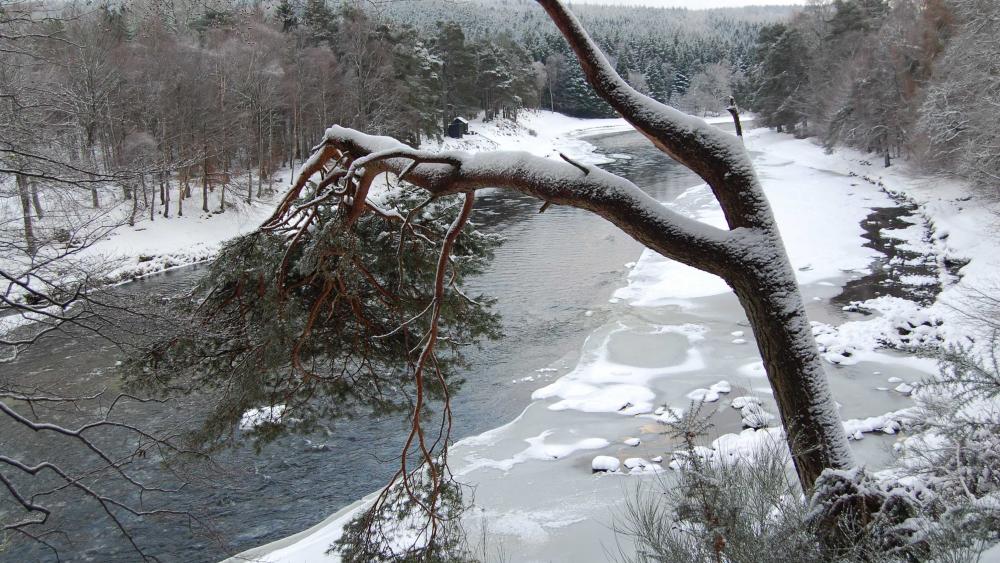
Global warming particularly affects the water regime of ecosystems in cold, northern regions. Photo: Dörthe Tetzlaff
The study was part of the ERC grant (ERC= European Research Council) VeWa (Vegetation effects on water flow and mixing in high-latitude ecosystems). The aim of VeWa is to improve the understanding and forecasting of how climate change affects the water resources of watercourses in Nordic regions. These are also called the "water towers of the world".
In a recent publication, led by Dr Hailong Wang from the University of Aberdeen (and now at Sun Yat-sen University, China) the team evaluated hydroclimatic data from six intensively studied river basins in Scotland, Canada and Sweden along a climatic gradient in the North and combined them with remote sensing data on vegetation. The results of the study show that in these higher latitudes pre-season temperature has a greater influence on vegetation growth than precipitation. Furthermore, an earlier beginning and a longer duration of the vegetation period leads to a decline in streamflows due to rising temperatures. These data analyses support the statement that global warming particularly affects the water regime of ecosystems in cold, energy limited northern regions.
"In the course of the project we have learned a lot about the important role of vegetation for water distribution and the water cycle in the landscape. Uniquely, we have explored this along a spatial gradient that encompasses different ecological and climatic conditions - from dry sub-borreal areas to subarctic regions. We hope that the methods and models developed will allow us to better predict the effects of climate change in these regions," said ERC fellow Prof. Dörthe Tetzlaff, summarising the holistic approach of the project.





